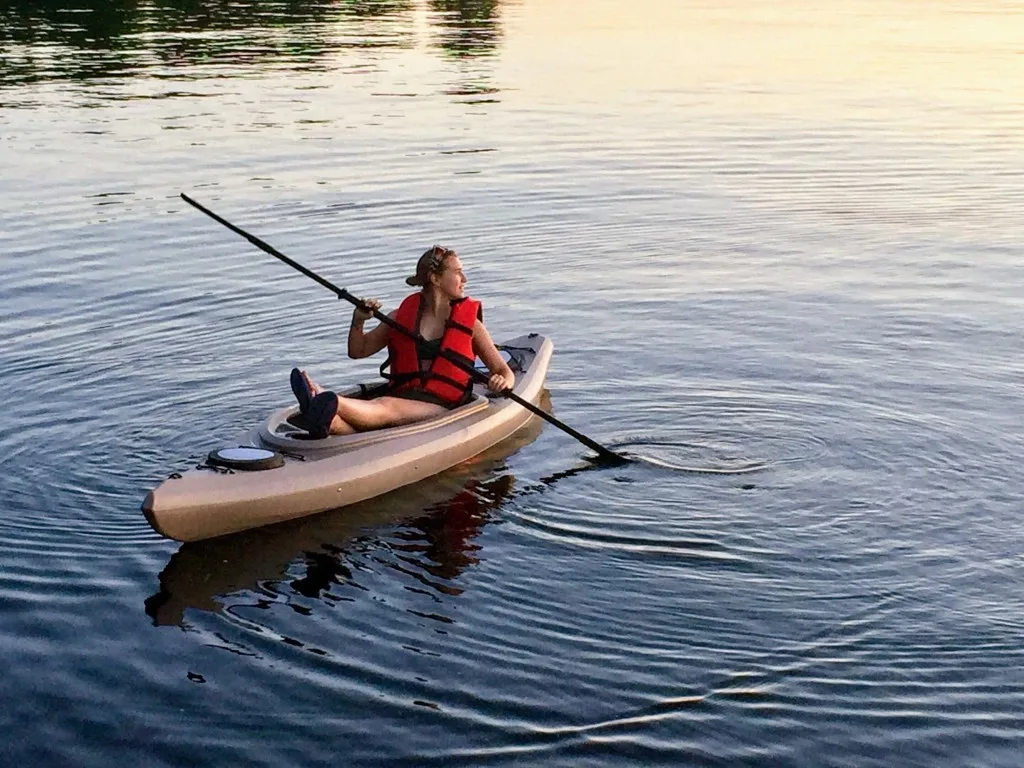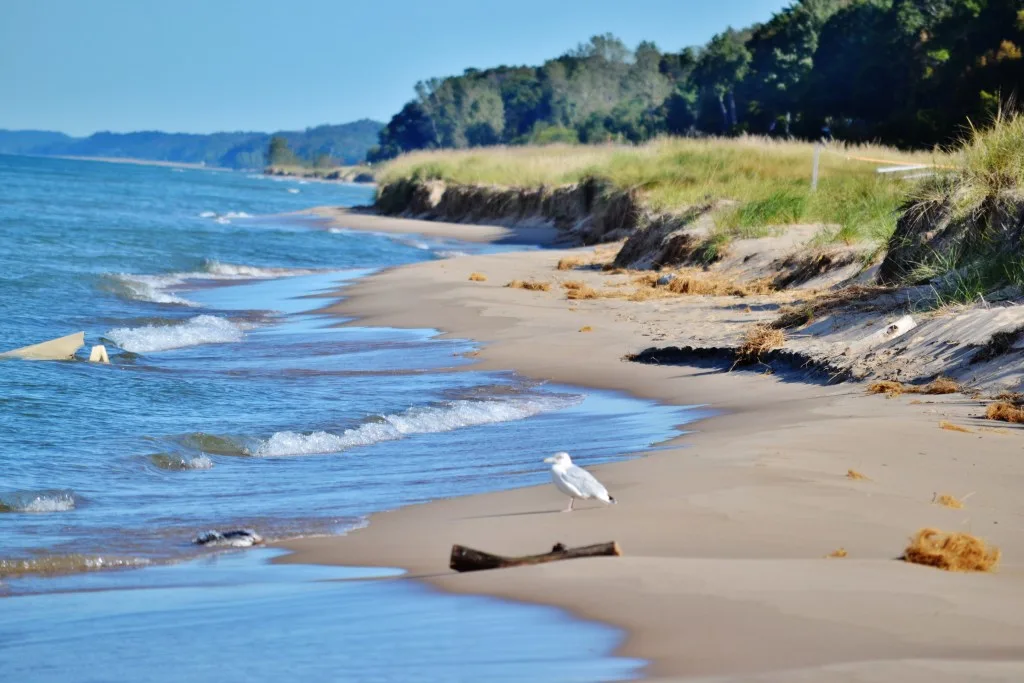Those in the midwest might be far from the coast, but that doesn’t mean they can’t engage in water fun. Lake Michigan is one of the five great lakes. There is something for everyone to do there, with boating, swimming, fishing, and even dune recreation.
Four states have direct access to the lake, but can they claim it? Today, we are looking at who owns Lake Michigan and where public access areas are.
What Is Lake Michigan?
Lake Michigan is one of the five Great Lakes. The lake borders four states; Indiana, Illinois, Michigan, and Wisconsin. The Straits of Mackinac join lake Michigan and Lake Huron. The lake is around 118 miles wide and 307 miles long. Lake Michigan averages 279’ in depth, with 925’ being its deepest point. There are over 1,600 miles of shoreline, and it is the only great lake entirely within The United States boundary. The rest of the great lakes touch Canada in some capacity.
Lake Michigan is the “third coast” of the United States due to its many sandy beaches. Visitors enjoy white beaches as well as grass-covered dunes. Some dunes reach several hundred feet above the water’s surface.

Who Does Lake Michigan Belong to?
Because Lake Michigan is within the U.S., it is the property of the United States. According to the Public Trust Doctrine, the general public owns the lake water. While four states touch Lake Michigan, the states do not own the lake water. The states own the land that falls within their territory that surrounds the lake.
Who Owns the Bottom of Lake Michigan?
In addition to states owning the land that touches the shoreline, the states also own the lake bed. Therefore, while individual states do not own the lake’s water, they own the land in which the lake sits that falls within its border.
Pro Tip: We uncovered What Are The Most Dangerous Creatures in Lake Michigan. Will you still dare to dive in?
Is Lake Michigan Public Property?
Lake Michigan’s water is public property. The water, as well as submerged land, are held in the public trust. The nearby neighboring property owners do not own the water or the lake bed under the water.

Who Controls Great Lakes Water?
The DNR of each state is responsible for patrolling and regulating the portion of the lake that falls within its border. This means you will need to research the state whose waters you will be recreating to get accurate information on fishing and boating laws.
The control of the water levels and items that affect the lake’s entirety belongs to the International Joint Commission. According to the Indiana DNR, much of the water regulation stems from Lake Superior, “Presently, the International Joint Commission implements plans under which limited regulation of Lake Superior and Lake Ontario occurs.
The regulation of Lake Superior influences the whole Great Lakes System; however, regulation of Lake Ontario has no impact on the upper lakes because of the difference in elevation at Niagara Falls, which acts as a control.”

Can You Have a Private Beach On Lake Michigan?
Whether you can have a private beach on Lake Michigan depends on the state. While the water is always open to public access, the shoreline can be different, with each state varying in its stance.
Regarding the state of Michigan, all private shoreline properties extend to the water’s edge. However, private beaches allow the public to pass by on foot up to the natural high watermark.
In Wisconsin, private property stops at the high watermark, and the state owns the land from that point toward the water. Those who own beachfront property have exclusive rights to the water’s edge, and the DNR has a “keep your feet wet” policy for those passing through.
In Illinois, private land ends at the water’s edge. The public has access to all water but should not come onto dry private land. Those with private land along Lake Michigan in Indiana tend to have strong opinions on where their property line is. The Indiana Supreme Court has ruled that the Lake Michigan shoreline is public property up to the high water line. This ruling remains despite many landowners holding deeds that state they own to the water’s edge. This is an ongoing issue for residents.
Is It Legal to Take Rocks From the Lake Michigan Shoreline?
Because Lake Michigan’s shoreline borders four states, each state will have its regulations regarding rocks taken from the shore. Federal law prohibits anyone from removing any articles, including stones, from National Shorelines.
Those recreating on state-owned land must obey different regulations. For example, those in Michigan can remove up to 25lbs of rocks from state-owned land a year.
Pro Tip: Spend the night at one of these 7 Best Campgrounds on Lake Michigan.
Do Private Property Lines Extend Into Lake Michigan?
The water of Lake Michigan is public property, and private landowners have no ownership once the water meets the land, regardless of the state. Those choosing to remain on the water can do so without worrying that they are crossing private property lines. Avoid leaving the water on public property to ensure you are not trespassing.
Have you had a chance to spend time on or near Lake Michigan? What was your favorite thing to do while experiencing the lake? Tell us in the comments!
Discover the Best Free Camping Across the USA
To be honest with you, we hate paying for camping. There are so many free campsites in America (with complete privacy).
You should give it a try!
As a matter of fact, these free campsites are yours. Every time you pay federal taxes, you’re contributing to these lands.
Become a FREE CAMPING INSIDER and join the 100,000 campers that love to score the best site!
We’ll send you the 50 Best Free Campsites in the USA (one per state). Access the list by submitting your email below: